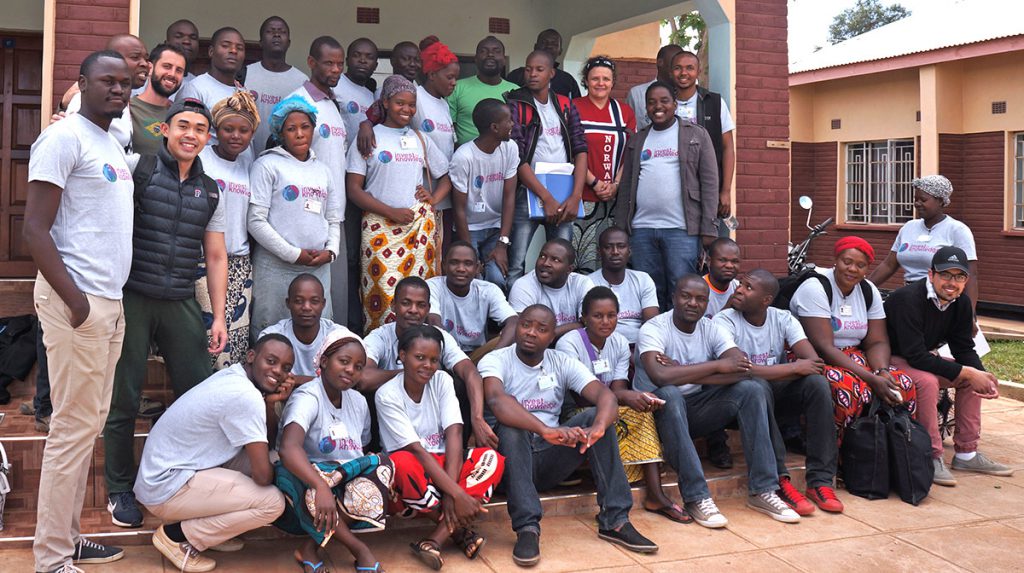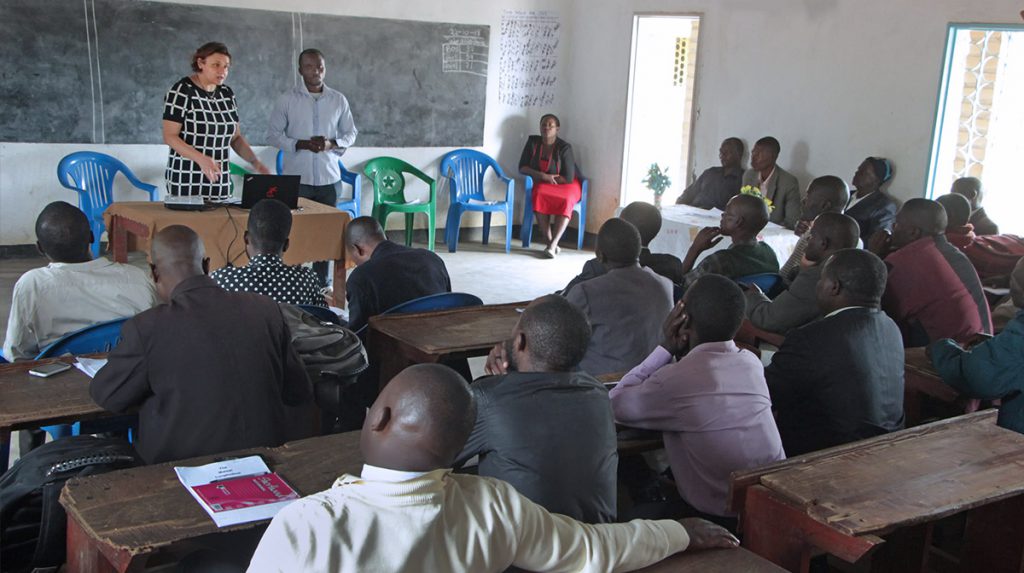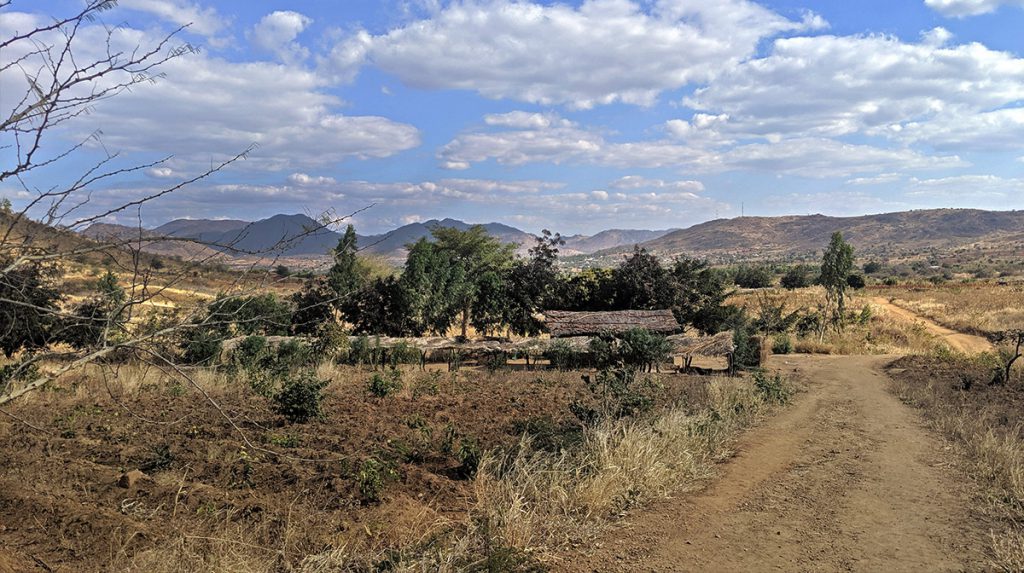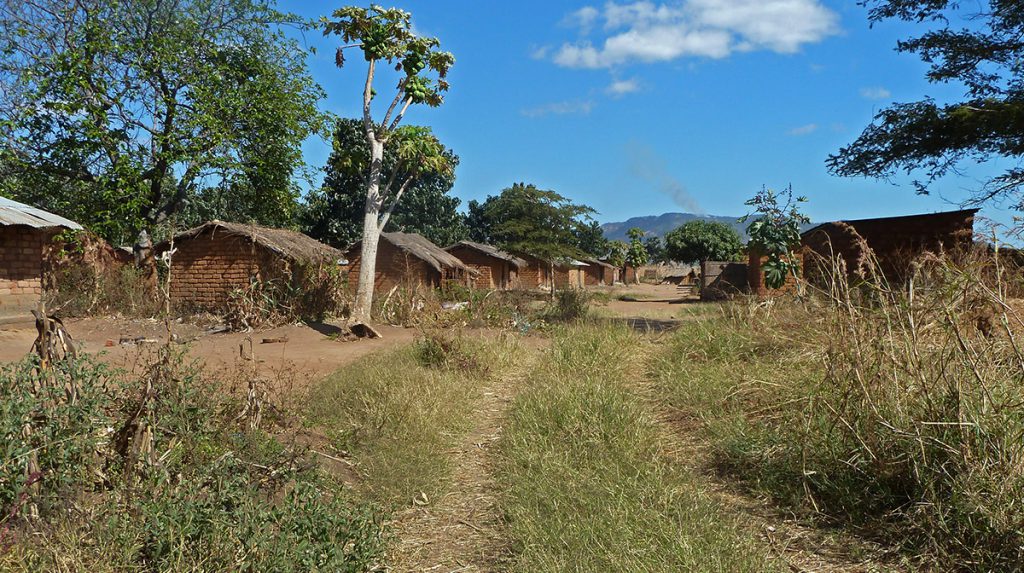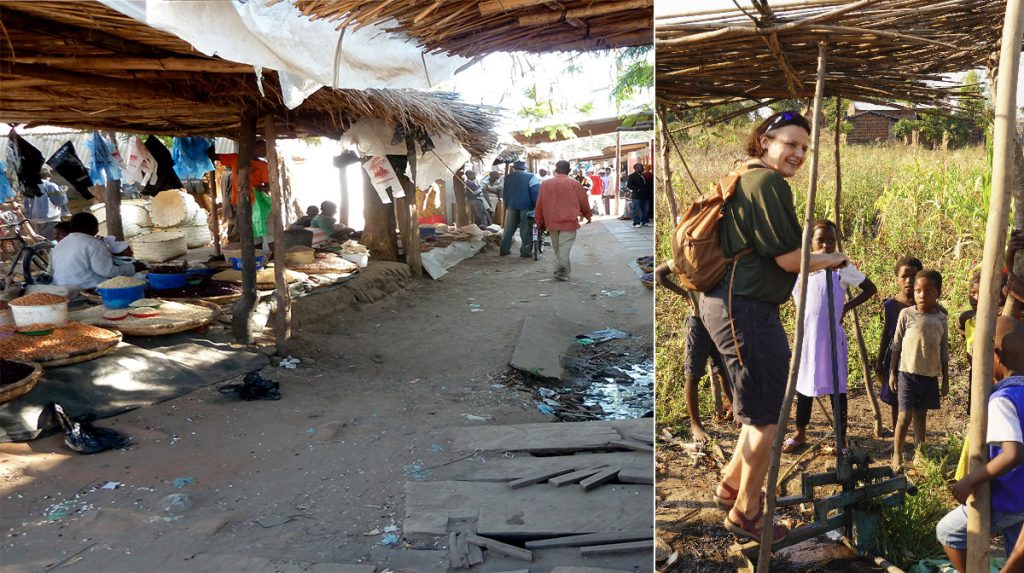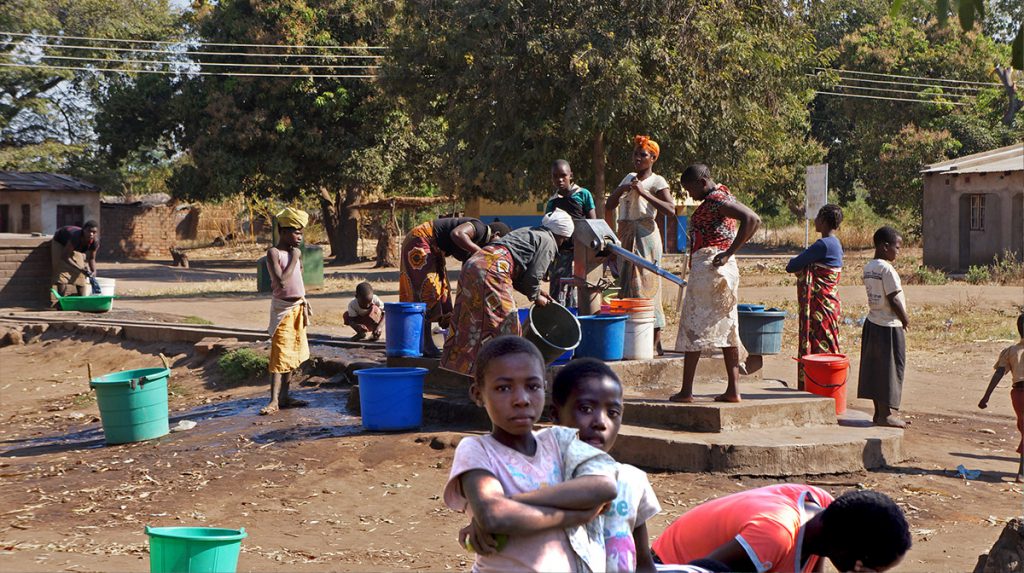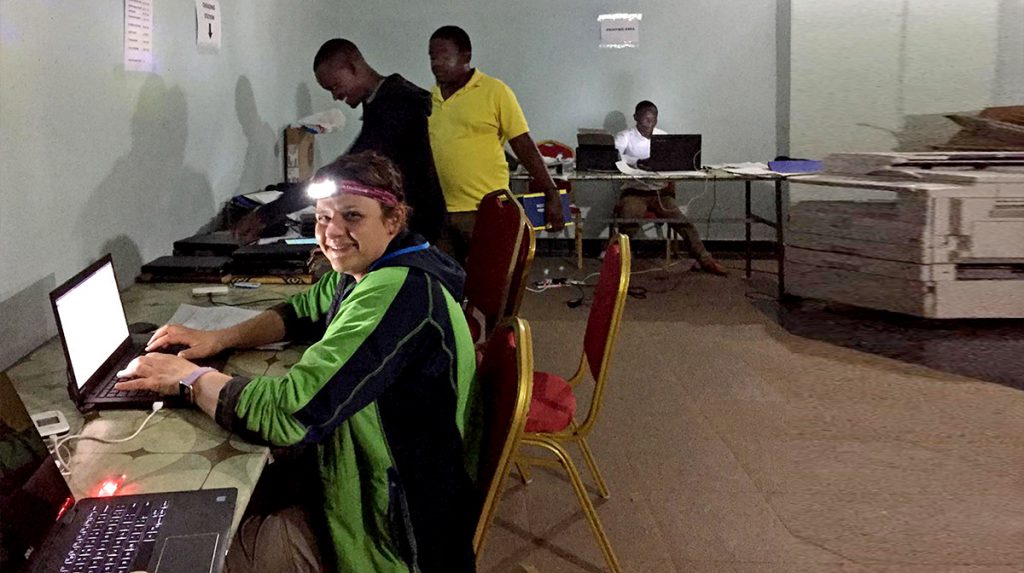Population Health
News
Penn Population Scientists Win NAM Catalyst Grant Award
LDI Senior Fellow Iliana Kohler Leads Aging and Health Project in Malawi, Africa
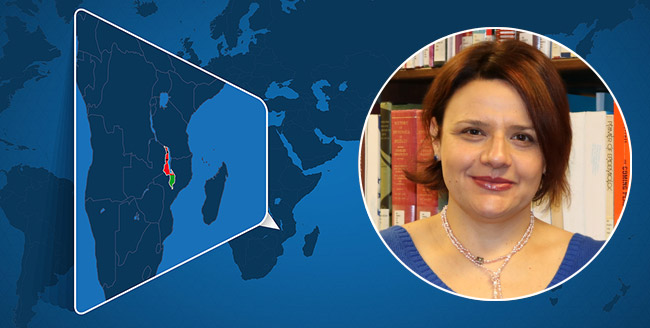
A University of Pennsylvania team led by School of Arts & Sciences Assistant Research Professor and LDI Senior Fellow Iliana Kohler has won a National Academy of Medicine (NAM) Healthy Longevity Global Grand Challenge Catalyst Award supporting aging and health-related research in Malawi, Africa.
Entitled “Leveraging Social Networks and Linkage to Care to Foster Healthy Aging in a Low-Income Context,” the Kohler project is in keeping with the international scope of the NAM program that gave Catalyst Awards to research teams in the US, UK, European Union, Israel, Singapore, Japan, Taiwan and Tanzania.
The Malawi project is one of 124 receiving Catalyst Awards in the first round of NAM’s new program and Penn received two of those research awards. The proposed aging research work is an offshoot of the Malawi Longitudinal Study of Families and Health (MLSFH) run by Penn’s Population Studies Center (PSC) and Population Aging Research Center (PARC) for two decades.
“Our study population in Malawi broadly represents the living conditions of large numbers of individuals living in poor sub-Saharan countries, so the relevance of our work extends beyond Malawi,” explained Kohler, PhD, who is also Associate Director of the Penn Population Studies Center.
Accelerated aging in Malawi
“Aging has a very different dynamic in this context,” said Kohler. “Forty-years old in Malawi is not like 40-years old in the U.S. or Europe. We call it accelerated aging. In Malawi there are no retirement homes or long-term care institutions or anything like that. The village and the family are all there is.”

The Penn team’s Catalyst work is aimed at understanding how social networks — physical rather than electronic networks — could be used to more effectively disseminate elder health information about non-communicable diseases throughout a country lacking the mass communications infrastructure of industrialized nations.
Founded by NAM and launched in December of 2019 in collaboration with the National Institute on Aging (NIH), the Healthy Longevity Global Grand Challenge Catalyst program is essentially a global innovation tournament designed to accelerate scientific advances related to health care and the elderly.
Urgent need
The NAM website explains, “At the current pace, population aging is poised to impose a significant strain on economies, health systems, and social structures worldwide. Multidisciplinary solutions are urgently needed to maximize the number of years lived in good health and a state of well-being.”
The first phase of the three-year Catalyst program will provide seed funding to 450 research projects. The second phase will provide $500,000 each to two select finalists. The third and final phase will be a $5 million grand prize to the research team that has achieved “a breakthrough innovation that extends the human health span.”
The grant to Kohler’s team supports research done in collaboration with policymakers from the Malawi Ministry of Health & Population, the Department of Disability and Elderly Affairs in the Ministry of Gender, Community Development and Social Welfare and researchers from the College of Medicine (COM) in Blantyre.
From Eastern Europe to Sub-Saharan Africa
A native of Bulgaria, a former Soviet Bloc country, Kohler received her PhD in Political Science from the University of Southern Denmark and her MA in German Philology at the University of Vienna.
“During my school years, my interests centered on Eastern Europe,” said Kohler, whose research specialty is aging and mortality. “In graduate school, my dissertation was about Bulgarian and Russian demography and mortality. Both countries had very significant declines in life expectancy and increases in mortality after 1989 (when the Soviet Union collapsed). These were striking patterns that really interested me. I never thought I’d be doing research in Sub-Saharan Africa.”
That changed in 2001 after she married Hans-Peter Kohler, PhD, Professor of Demography at the School of Arts & Sciences and principal investigator of the Malawi Longitudinal Study of Families and Health (MLSFH). His research focused on fertility and health in developing countries; the Longitudinal Study he headed was in place in Malawi as that country was ravaged by one of the world’s highest rates of HIV infection.
Lure of Malawi data
“In the beginning, we tried to keep our work very separate,” said Kohler. “He was doing Malawi and I was doing aging and mortality in other contexts. But sometimes, I looked at the Malawi data because I was just curious about its inter-generational transfer patterns. I could see it was great data on this population going back to 1998 that could obviously support the analysis of aging and mortality patterns going forward.”
She became part of the Longitudinal Study in 2010 and in 2012 established a new arm of the project – the Mature Adults Cohort of the Malawi Longitudinal Study of Families and Health (MLSFH-MAC). It is focused on the study of aging, cognition, mental health and non-communicable diseases in the rural subsistence farming communities where 80% of the Malawian population lives. In many years since, Kohler has spent up to three months a summer in Malawi collecting and analyzing data. It is research done in some of the most difficult conditions possible.
One of world’s poorest countries
Malawi, a landlocked country in southeastern Africa, is one of the world’s poorest societies. The United Nations Human Development Index indicates a majority of Malawians live in “multidimensional poverty.” The country is bereft of most of the infrastructure industrial societies take for granted. Only 12% of its residents have access to electricity; less than 20% have access to the internet. The majority of roads are dirt roads largely impassable during the rainy season.
On the flip side, English is widely spoken in the former British colony and the country is renowned for warmly welcoming visitors from elsewhere. In fact, Kohler points out, it has a continental reputation as being “the warm heart of Africa” because of its people’s affable nature.
However, phone connections, electricity and travel there can pose challenges.
“I remember back in 2001, a few days after our wedding, Hans-Peter left for Malawi and I didn’t hear anything at all from him for two weeks because there were no cell phone connections in the rural areas where he was,” said Kohler. “Until about 2010, if you wanted to make a call you had to take a car to one of the bigger towns to get a signal or use an internet cafe. Even after that, when we were doing data collection, I’d have to walk all over to find a phone signal. Since 2017, we’ve been doing electronic data collection; we upload to secure servers at Penn every night. But when there’s no electricity, we have a generator and have to worry about where to get gas when it runs out. In the rainy season, it’s hard to get anywhere because the roads go to such mud that even bicycles can’t get through.”
Historic phone survey
“There has been rapid improvement recently,” said Kohler. “We’re seeing more and more cellphone towers go up and cellphones being available out in the villages. It’s now common for a family to have one cellphone shared among all its members. In some places, multiple families share a cellphone. But last summer, as part of the NIH-funded MLSFH project and that was also supported by an LDI-funded COVID-19 Rapid-Response research project, we were able to conduct a COVID-19 focused phone survey in Malawi from the U.S. It was the first time we could reach 70% of the cohort respondents by phone.”
The various components of the national health system spread across the country are rudimentary and overburdened. The World Health Organization ranks Malawi’s health system’s performance as 185th among 191 countries. Other reports cite “maldistribution of resources, fragmentation of services, and the lack of adequate coordination and regulation.” Hospitals often have no running water. Malawian life expectancy at birth is 64 years, infant mortality is 30.9 per 1000 live births, and the literacy rate among adult women is 55.2%.
Throughout the agricultural village areas, Health Surveillance Assistants (HSAs), who receive basic training, play a huge role in health care. Much of their work in the last two decades has been focused on large numbers of Malawians infected with HIV. That HIV/AIDS crisis has now been mitigated somewhat by the widespread availability and use of antiretroviral therapy (ART) medications. Currently, 79% of HIV-infected adults in Malawi are reported to be on ART drug regimens that suppress and prevent the transmission of the virus. But that has created a new issue.
Aging with HIV
“In 2012 when we established the mature adults cohort,” said Kohler, “about five percent of the respondents were HIV-positive. In 2017, we had almost eight percent and that is obviously continuing to grow as the current population of HIV-positive Malawians survives to older ages.”
Malawi, which has a population of 19 million, has more than 1.1 million HIV-positive people and 33,000 new cases each year.
“Most HIV statistics we see still focus on 15 to 49 years of age,” continued Kohler. “But now, a lot of HIV-positive people on ART are living much longer and their need for more specialized care has to be addressed by health systems. Being HIV-positive is also associated with declines in cognitive health and is a risk factor for various non-communicable diseases. This is a very interesting trend with implications I don’t think many people have focused on.”
Non-communicable disease challenge
Another change across the years of the longitudinal study is that, as the HIV epidemic calmed, new health challenges such as the rising prevalence of non-communicable diseases like hypertension, asthma, epilepsy, diabetes and mental illness have emerged in the rural areas.
The result, according to Kohler, is a rapid increase in the need for screening for and addressing the burden of non-communicable diseases that place a further heavy load on the limited capacities of the country’s health system.
“For instance,” she said, “we’re seeing a rapid rise in hypertension in our rural population. It’s very highly prevalent among older people as well as among young people. This isn’t unique to Malawi; the same pattern is seen throughout other sub-Saharan countries.”
One of her team’s efforts to address hypertension was a screening study that provided formal letters to respondents, officially informing them only they had been found to have elevated blood pressure. Four years later, a subsequent screening found hypertension in the same group reduced by 22%. The assumption is that the letters caused study participants to be more aware of the condition, leading many to seek information, treatment and medications for reducing hypertension.
Cheap interventions with impact
“Part of what we do is try to understand the very, very simple kinds of measurements and cheap interventions that can actually achieve significant health impacts in the context of Malawian daily life,” said Kohler.
Another thing the Penn Malawi project does is introduce more young scientists to the real-world work of health services research in underdeveloped countries.
“Ever since it was established in 1998, the Malawi Longitudinal Study of Families and Health has been taking postdoc, graduate and undergraduate students to Malawi for its summer field work,” said Kohler. “This is not a vacation; they’re very actively involved in the project in a place that is itself an educational experience about different people and conditions in the world beyond Philadelphia.”
African experience for Penn students
“Some [students] join because they have research interests in sub-Saharan Africa” said Kohler. “Others want to gain experience in conducting fieldwork and being engaged in the implementation of a large research project. We also encourage students in our demography PhD program to join us. For some, this turns into a research focus. Many dissertations have been written and many new collaborative connections have been made using MLSFH data.”
“Students quickly learn that when you essentially spend 24 hours a day for several months with the same people in a place like Malawi,” Kohler said, “you develop a lot of professional and collegial relationships and friendships — and you often have experiences that change your view of the world and your own place in it.”
